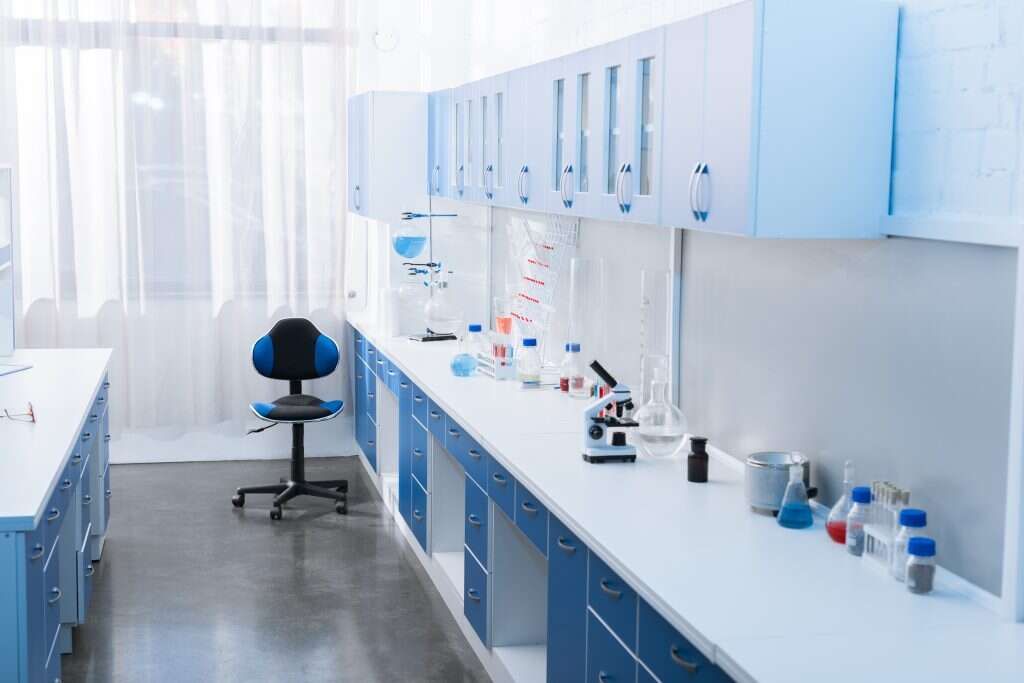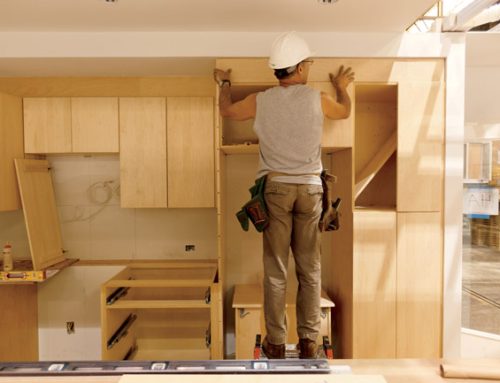In the fast-evolving pharmaceutical industry, innovation is paramount. As pharmaceutical research and development continue to advance, laboratories play a crucial role in fostering breakthroughs. The right environment can significantly enhance the efficiency and quality of research, leading to accelerated discoveries and improved healthcare outcomes. One of the key factors in optimizing laboratory spaces is the integration of modular furniture laboratorium.
This article explores how modular furniture can contribute to pharmaceutical innovation, providing flexible, adaptable, and functional solutions for laboratories in pharmaceutical settings and hospitals.
What is Modular Laboratory Furniture?
Modular laboratory furniture refers to a range of customizable, pre-fabricated pieces designed to create a fully functional laboratory workspace. Unlike traditional, fixed installations, modular furniture systems allow for the creation of versatile and reconfigurable laboratory spaces that can be adapted to changing needs. These systems typically include workbenches, storage units, shelving, fume hoods, and more, all designed to be easily reconfigured or expanded.
The key advantage of modular laboratory furniture lies in its flexibility. Pharmaceutical labs often experience changing workflows, evolving research projects, and technological advancements that demand adaptable solutions. Modular furniture provides the necessary infrastructure to keep pace with these changes without the need for expensive, disruptive renovations.
The Role of Modular Furniture in Pharmaceutical Innovation
1. Improved Workflow Efficiency
Efficiency is critical in pharmaceutical laboratories, where time-sensitive research and experiments require streamlined operations. Modular laboratory furniture can be customized to optimize the flow of work within a laboratory. By strategically placing workstations, equipment, and storage in a logical sequence, the layout can minimize movement and ensure that researchers have easy access to the tools they need.
The modular design also supports lean lab management practices. As research needs evolve, laboratory managers can easily adjust the furniture layout to accommodate new workflows, without having to invest in entirely new furniture or disrupt ongoing projects. This reduces downtime and enhances overall productivity.
2. Adaptability for Changing Needs
The pharmaceutical industry is constantly evolving, with new drugs, technologies, and methodologies driving rapid change. Modular laboratory furniture allows pharmaceutical companies to adapt quickly to these shifts. Whether it’s a new research project that requires different equipment or a growing team that necessitates additional workspace, modular systems can easily be reconfigured to meet new demands.
Additionally, modular systems can be expanded as a lab grows. This adaptability is crucial for pharmaceutical laboratories where research projects may scale up unexpectedly, and space requirements can change over time. The ability to extend or modify workstations, add storage, or reconfigure work areas helps laboratories remain agile and responsive to shifting needs.
3. Enhancing Safety and Compliance
Safety and regulatory compliance are of paramount importance in pharmaceutical labs. Modular laboratory furniture is designed to meet stringent safety standards, including providing integrated fume hoods, chemical-resistant countertops, and built-in safety features. The flexibility of modular systems also enables the incorporation of specialized features, such as explosion-proof cabinets or customizable workstations that cater to specific safety protocols.
In environments where hazardous chemicals or biological agents are used, modular systems can incorporate features like proper ventilation, secure storage, and ergonomic designs that minimize the risk of accidents. The ability to quickly adjust or upgrade safety features ensures that laboratories remain compliant with evolving industry regulations and standards.
4. Optimizing Space Utilization
Space is often limited in pharmaceutical laboratories, particularly in busy hospital settings where multiple research and testing activities take place. Modular laboratory furniture allows for the optimal use of available space by maximizing vertical storage, compact workstations, and multi-functional units. This ensures that laboratory space is not wasted and that researchers have the space they need to work efficiently.
Moreover, modular systems can be designed to fit within specific space constraints, making them an ideal solution for laboratories with irregular or limited square footage. Customizing storage solutions, work surfaces, and equipment placement ensures that every inch of the laboratory is utilized effectively, contributing to a more organized and productive workspace.
Practical Applications in Pharmaceutical Laboratories and Hospitals
The application of modular laboratory furniture extends beyond pharmaceutical research labs. Hospitals, especially those with research departments or clinical trial units, can also benefit from the flexibility and adaptability of modular furniture systems. From drug preparation areas to diagnostic laboratories, modular furniture supports a range of medical and scientific functions.
For example, modular systems can be implemented in hospital pharmaceutical departments to optimize the workflow of pharmacists and other healthcare professionals. These modular setups can support various tasks, such as medication preparation, storage, and distribution, while ensuring compliance with safety regulations. Similarly, diagnostic labs in hospitals can use modular furniture to create flexible workspaces for processing samples and conducting tests, supporting both clinical and research applications.
Conclusion
As the pharmaceutical industry continues to innovate, the need for adaptable, efficient, and safe laboratory environments becomes increasingly crucial. Modular laboratory furniture offers a versatile solution for pharmaceutical labs, providing flexible spaces that can be easily adjusted to meet evolving research needs. With improved workflow efficiency, adaptability, enhanced safety features, and optimized space utilization, modular furniture is transforming pharmaceutical research environments.
For laboratories and hospitals looking to stay ahead in an ever-changing landscape, investing in modular laboratory furniture is an essential step in fostering pharmaceutical innovation.







Leave A Comment